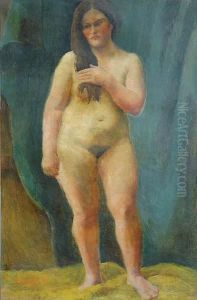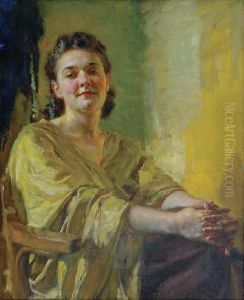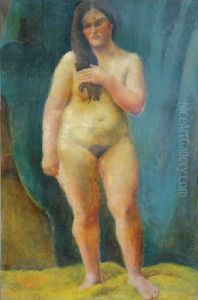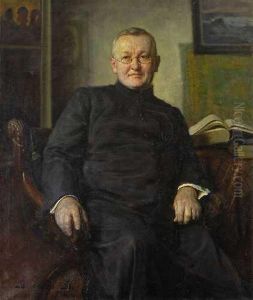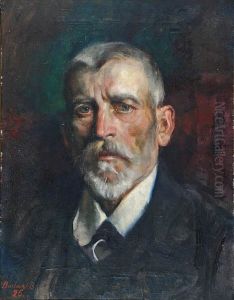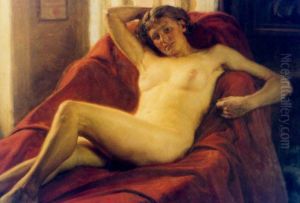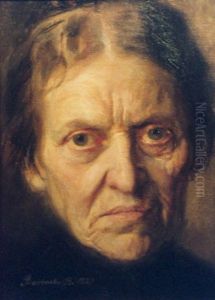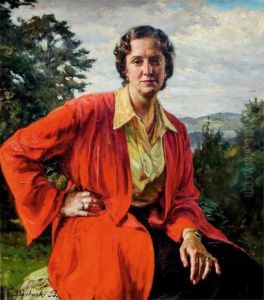Boleslaw Barbacki Paintings
Boleslaw Barbacki was a prominent Polish figure, whose multifaceted career spanned across painting, pedagogy, and acting, making significant contributions to the cultural life of Poland, particularly in the interwar period. Born on August 24, 1891, in Nowy Sącz, a city in the Lesser Poland region, Barbacki grew up in an environment that nurtured his artistic talents from a young age. He pursued formal education in art at the Kraków Academy of Fine Arts, where he was under the tutelage of eminent artists such as Józef Mehoffer and Leon Wyczółkowski. His education not only honed his skills in painting but also instilled in him a deep appreciation for the arts and education, which would later influence his career as an educator and cultural activist.
Barbacki's artistic oeuvre is characterized by its diversity, encompassing portraiture, landscape, and genre painting. His works are noted for their sensitivity, attention to detail, and the ability to capture the essence of his subjects. Beyond his contributions to the visual arts, Barbacki was deeply invested in the development of cultural infrastructure in Nowy Sącz. He founded and directed the People's House in Nowy Sącz, which became a hub for cultural education and activity, offering classes in art, music, and theater, among others. His commitment to cultural education was also evident in his role as a teacher, where he nurtured the talents of young artists.
During the interwar period, Barbacki was an active member of the Polish intelligentsia, contributing to the cultural and educational landscape of the country. He was involved in numerous artistic societies and participated in many exhibitions, both in Poland and abroad. His dedication to the arts and culture was also manifested in his involvement in the theater, both as an actor and a set designer, further showcasing his versatile talent.
However, Barbacki's life and career were tragically cut short during World War II. He was arrested by the Gestapo in 1941 as part of the Nazi regime's crackdown on Polish intellectuals and cultural figures, a campaign aimed at decimating Polish culture and identity. Boleslaw Barbacki was executed on July 21, 1941, leaving behind a legacy that is remembered for its profound contribution to Polish art and culture. Despite the brevity of his life, his work and his efforts in cultural education have had a lasting impact, preserving his memory as a distinguished figure in Polish history.

